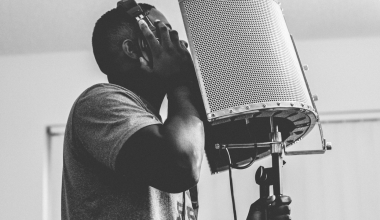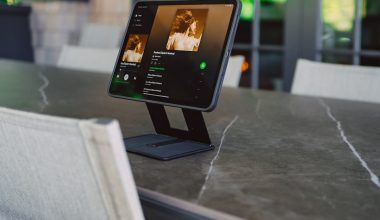Working with other musicians can be one of the most rewarding experiences in your music career. Whether you’re forming a band, collaborating on a single, or co-writing a song, the magic that happens when creative minds come together is unmatched. However, working with other musicians also comes with its challenges. This guide will help you navigate these challenges, ensuring that your collaborations are successful and enjoyable.
Why Collaboration is Key in Music
Working with other musicians allows you to pool your talents, ideas, and resources. It broadens your musical horizons and can lead to innovative sounds that you might not achieve on your own. Collaboration is the heart of the music industry—think of famous duos like Lennon and McCartney or modern collaborations like Drake and Rihanna. When you collaborate, you learn from others, gain new perspectives, and push your boundaries as an artist.
How to Find the Right Musicians to Work With
The first step in working with other musicians is finding the right people. This doesn’t just mean finding someone with similar musical tastes, but also someone whose work ethic, communication style, and vision align with yours. Here’s how to find the right fit:
- Network Within Your Music Community: Attend local gigs, open mics, and music workshops. Engage with other musicians, exchange contacts, and discuss potential collaborations.
- Use Online Platforms: Websites like SoundBetter, BandMix, and even social media platforms like Instagram and Twitter are great places to find musicians to collaborate with. Look for people whose work you admire and reach out to them.
- Join Music Groups: Being part of a band, choir, or ensemble can open up opportunities to work with like-minded individuals.
- Ask for Recommendations: Sometimes, the best way to find reliable collaborators is through word of mouth. Ask your current contacts if they know anyone looking to collaborate.
Setting Clear Goals and Expectations
When working with other musicians, it’s important to set clear goals and expectations from the start. Misunderstandings can be avoided by having open and honest discussions about what each person wants to achieve. Here’s how to set the stage for a successful collaboration:
- Define the Project Scope: Is this a one-time collaboration or a long-term partnership? Decide on the type of project you want to work on together.
- Discuss Creative Direction: Ensure everyone is on the same page regarding the style, genre, and overall sound of the project. This is crucial to avoid creative clashes down the road.
- Set Deadlines: Agree on a timeline for writing, recording, and releasing your music. Deadlines help keep everyone accountable and ensure the project moves forward.
- Establish Roles: Clearly define who will handle what. Whether it’s songwriting, production, or promotion, everyone should know their responsibilities.
Communication is Key
Effective communication is essential when working with other musicians. Without it, even the best collaborations can fall apart. Here are some tips to keep the communication flowing smoothly:
- Regular Check-ins: Schedule regular meetings or calls to discuss progress, share ideas, and address any concerns. This keeps everyone in the loop and helps maintain momentum.
- Be Honest and Constructive: If you have feedback, deliver it in a way that is honest but not hurtful. Constructive criticism is essential in the creative process.
- Listen Actively: Make sure to listen to your collaborators’ ideas and concerns. Valuing each other’s input strengthens the partnership.
- Resolve Conflicts Quickly: If a disagreement arises, address it as soon as possible. Letting issues linger can create resentment and harm the collaboration.
The Creative Process: Writing and Producing Music Together
The creative process is where the magic happens in working with other musicians. Here’s how to make the most of it:
- Brainstorm Together: Start with a brainstorming session where everyone can share ideas freely. This is the time to experiment and think outside the box.
- Combine Strengths: Play to each other’s strengths. If one person is a better lyricist and another excels at composing, divide tasks accordingly.
- Experiment with Sounds: Don’t be afraid to try new things. Working with other musicians can bring out a side of your creativity you didn’t know existed.
- Record Ideas Early: As soon as you have a rough idea, record it. Sometimes the first take captures the energy and spontaneity that’s hard to replicate later.
- Be Open to Compromise: Remember that collaboration is about give and take. Be willing to adapt your ideas to fit the collective vision.
Recording and Mixing: Sharing the Studio
Sharing a studio with other musicians requires cooperation and understanding. Here’s how to ensure a smooth recording process:
- Plan Studio Time: Book studio sessions well in advance and plan what you aim to achieve in each session. This keeps everyone focused and maximizes your time in the studio.
- Respect Each Other’s Space: Studio time can be intense. Make sure to respect each other’s creative space and give everyone a chance to contribute.
- Collaborate with the Engineer: The sound engineer is an integral part of the recording process. Work closely with them to capture the best sound.
- Take Breaks: Long recording sessions can be exhausting. Schedule breaks to keep energy levels high and maintain creativity.
- Review Takes Together: After recording, review the takes together and discuss what works and what doesn’t. This ensures everyone is happy with the final product.
Promoting Your Collaborative Work
Once the music is ready, the next step in working with other musicians is promoting your collaboration. A successful promotion can bring your music to a wider audience. Here’s how to get started:
- Leverage Social Media: Use your combined social media platforms to promote your work. Share behind-the-scenes content, teasers, and release dates to build anticipation.
- Create a Press Kit: A well-designed press kit that includes bios, photos, and a description of your project can help you secure media coverage.
- Engage with Fans: Engage with your audience by hosting live Q&A sessions, doing giveaways, or asking for their input on future projects.
- Submit to Playlists and Blogs: Getting your music featured on popular playlists and blogs can significantly boost its visibility. Research and submit your work to platforms that align with your music genre.
- Plan a Launch Event: Whether it’s a live show or an online event, launching your collaboration with a bang can create buzz and attract more listeners.
Handling the Business Side
Working with other musicians also involves managing the business aspects of the collaboration. Here’s how to handle it:
- Split Royalties Fairly: Discuss and agree on how royalties will be split. This should be based on each person’s contribution to the project.
- Sign a Collaboration Agreement: To avoid disputes, consider signing a formal agreement that outlines the terms of your collaboration, including rights, royalties, and responsibilities.
- Register Your Work: Make sure your music is properly registered with a performing rights organization (PRO) to collect royalties from radio play, streaming, and performances.
- Manage Finances Transparently: Keep track of all expenses related to the project, and be transparent about the costs and profits with your collaborators.
- Plan for Long-Term Collaboration: If you plan to work together on multiple projects, discuss how you’ll manage these collaborations and whether you’ll form a formal partnership or band.
Overcoming Challenges in Collaboration
Challenges are inevitable when working with other musicians. Here’s how to overcome them:
- Creative Differences: When creative differences arise, it’s important to stay calm and open-minded. Try to find a middle ground or a way to incorporate both ideas.
- Conflicting Schedules: Coordination can be tricky, especially if you and your collaborators have different schedules. Use tools like Google Calendar to find common availability and plan sessions in advance.
- Egos and Pride: Sometimes, egos can get in the way. Remember that the goal is to create great music together, not to prove who’s better. Keep the focus on the music.
- Technical Issues: Technical problems in the studio can be frustrating. Always have a backup plan and try to remain patient while issues are resolved.
- Maintaining Momentum: Keeping the momentum going on a long-term project can be challenging. Regular check-ins and setting short-term goals can help keep everyone motivated.
Tips for Long-Term Collaboration Success
Building and maintaining long-term collaborations requires effort, understanding, and a shared vision. Here’s how to ensure that your working with other musicians continues to be successful over time:
- Build Trust: Trust is the foundation of any long-term partnership. Be reliable, transparent, and respectful towards your collaborators. Trust is built over time and through consistent actions.
- Stay Open-Minded: Keep an open mind about new ideas and directions, even if they initially seem out of your comfort zone. Long-term collaborations thrive on growth and adaptability.
- Communicate Regularly: Don’t let communication gaps form. Regularly discuss your goals, progress, and any issues that arise. This keeps everyone aligned and prevents misunderstandings.
- Celebrate Successes: Acknowledge and celebrate your milestones and successes, no matter how small. This keeps morale high and strengthens your bond as collaborators.
- Learn from Mistakes: Every collaboration will have its ups and downs. Use mistakes as learning opportunities to improve future projects rather than letting them create rifts.
- Keep the Creative Spark Alive: Try new things, experiment with different sounds, and challenge each other creatively. Keeping the creative spark alive is crucial for long-term success.
- Plan for the Future: Discuss your future goals as a collaboration. Whether it’s creating more music, touring together, or exploring new genres, having a shared vision for the future keeps everyone motivated.
Legal Considerations When Working with Other Musicians
When working with other musicians, it’s important to consider the legal aspects to protect everyone involved. Here’s what you need to know:
- Copyright Ownership: Clearly define who owns the rights to the music you create together. Typically, this is shared between the collaborators, but it’s important to formalize this in writing.
- Royalty Splits: Agree on how royalties will be divided among the collaborators. This should be based on each person’s contribution and documented in a written agreement.
- Contracts: Even if you’re working with friends, it’s wise to have a contract in place that outlines the terms of your collaboration. This can include rights, responsibilities, and payment details.
- Trademarking Band Names: If you’re forming a band, consider trademarking the band name to protect your brand.
- Dispute Resolution: Include a clause in your contract that outlines how disputes will be handled. This can prevent conflicts from escalating and provides a clear path for resolution.
The Emotional Side of Collaboration
Working with other musicians isn’t just about the technical and creative aspects; it also involves managing emotions and relationships. Here’s how to navigate the emotional side of collaboration:
- Respect Emotional Boundaries: Be mindful of your collaborators’ emotional boundaries and personal space. Creative work can be intense, so it’s important to be respectful and empathetic.
- Support Each Other: Be there for your collaborators, both professionally and personally. Supporting each other through challenges strengthens your bond and creates a positive working environment.
- Manage Stress: Collaboration can be stressful, especially when deadlines are tight. Practice stress management techniques and encourage your collaborators to do the same.
- Celebrate Individuality: Each collaborator brings something unique to the table. Celebrate your differences and use them to enrich the music you create together.
- Foster a Positive Environment: Create a working environment where everyone feels valued and appreciated. Positive reinforcement, encouragement, and recognition go a long way in maintaining a healthy collaboration.
Conclusion
Working with other musicians is a journey that can lead to incredible creative outcomes and lasting professional relationships. By finding the right people, setting clear goals, maintaining open communication, and navigating the creative process together, you can create music that resonates with audiences and stands the test of time.
Remember, collaboration is about more than just making music—it’s about building connections, learning from each other, and growing as an artist. Whether you’re new to collaboration or a seasoned pro, the tips in this guide will help you make the most of your partnerships and achieve success together.
So, take the plunge, reach out to other musicians, and start creating something amazing together. The possibilities are endless when you combine your talents with others!
For further reading, explore these related articles:
For additional resources on music marketing and distribution, visit Deliver My Tune.






